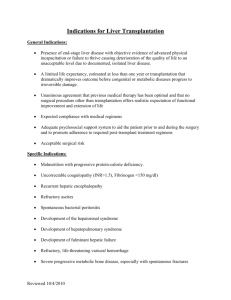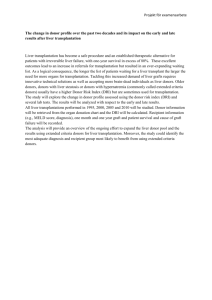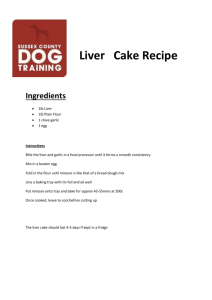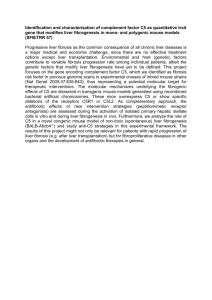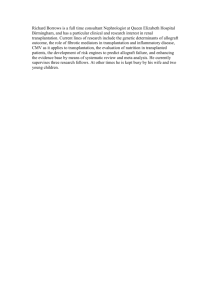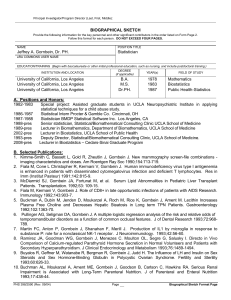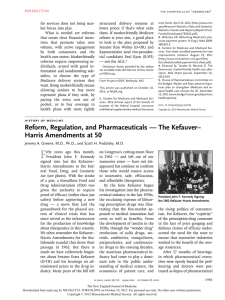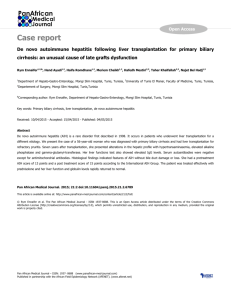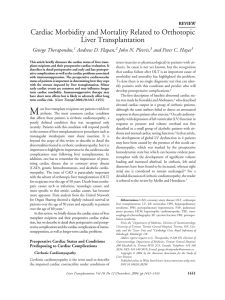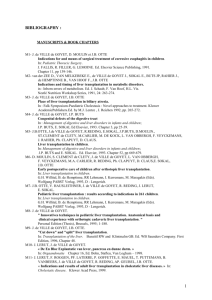doc
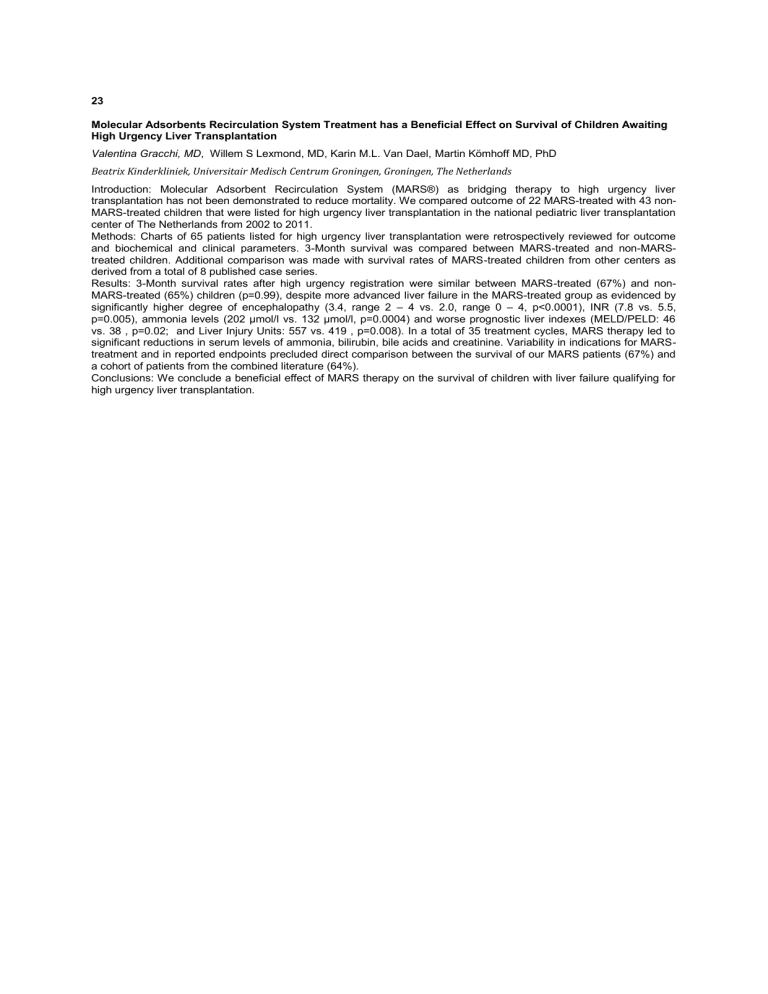
23
Molecular Adsorbents Recirculation System Treatment has a Beneficial Effect on Survival of Children Awaiting
High Urgency Liver Transplantation
Valentina Gracchi, MD , Willem S Lexmond, MD, Karin M.L. Van Dael,
Martin Kömhoff MD, PhD
Beatrix Kinderkliniek, Universitair Medisch Centrum Groningen, Groningen, The Netherlands
Introduction: Molecular Adsorbent Recirculation System (MARS®) as bridging therapy to high urgency liver transplantation has not been demonstrated to reduce mortality. We compared outcome of 22 MARS-treated with 43 non-
MARS-treated children that were listed for high urgency liver transplantation in the national pediatric liver transplantation center of The Netherlands from 2002 to 2011.
Methods: Charts of 65 patients listed for high urgency liver transplantation were retrospectively reviewed for outcome and biochemical and clinical parameters. 3-Month survival was compared between MARS-treated and non-MARStreated children. Additional comparison was made with survival rates of MARS-treated children from other centers as derived from a total of 8 published case series.
Results: 3-Month survival rates after high urgency registration were similar between MARS-treated (67%) and non-
MARS-treated (65%) children (p=0.99), despite more advanced liver failure in the MARS-treated group as evidenced by significantly higher degree of encephalopathy (3.4, range 2
– 4 vs. 2.0, range 0 – 4, p<0.0001), INR (7.8 vs. 5.5, p=0.005), ammonia levels
(202 μmol/l vs. 132 μmol/l, p=0.0004) and worse prognostic liver indexes (MELD/PELD: 46 vs. 38 , p=0.02; and Liver Injury Units: 557 vs. 419 , p=0.008). In a total of 35 treatment cycles, MARS therapy led to significant reductions in serum levels of ammonia, bilirubin, bile acids and creatinine. Variability in indications for MARStreatment and in reported endpoints precluded direct comparison between the survival of our MARS patients (67%) and a cohort of patients from the combined literature (64%).
Conclusions: We conclude a beneficial effect of MARS therapy on the survival of children with liver failure qualifying for high urgency liver transplantation.
